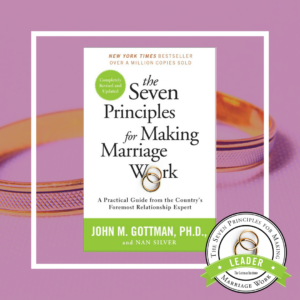
It’s understood that becoming parents creates changes in a relationship. Some of those changes are great and many will agree are worth every bit of the hard stuff. However, when stuck in the hard stuff, it doesn’t feel so great and can get really hard. This is stuff that most parents experience at some time or another, however, may not always speak of. As with most roles we take on, there’s expectations, social pressure, internal and external narratives that work to convince us to not expose the parts of ourselves needing support. These constructs negatively impact the mental health/well-being of all subscribing, as well as those around them.
Shedding light on things that don’t get spoken of can lead to healing and hope. This is includes exploring the other side of parenting, the part about our relationship with our partner. It’s equally as important as any parenting book or article we may read. The relationship between us & our partner is the foundation for our child/ren. Finding our relationship stride while parenting is no easy feat. Here I’m shedding insight & offering tips related to 3 common relationship changes when parenting a new baby / young child(ren).
- Feeling the extremes (Love and Hate)
I’d say feeling extremes toward our partner is common in general but can be heightened when adjusting to a new baby or parenting young kids. There are quite a few factors that create this dynamic, regardless I think it’s important to know it happens. Seeing pictures of happy families in social media or when others talk lovingly about their partner can increase feelings of resentment, hurt and discontent with our own relationships. We must try to take what we see/hear with a grain of salt, and be mindful that us too may share the good parts, or seem like a “happy couple” while knowing at times, thoughts of our partner can evoke harsh emotions.
Some factors that contribute to the fluctuation of extremes include:
- Comparisons: In our low points our view may be skewed to seeing everyone else’s highlights, without the ability to be mindful that it’s just a glimpse in. Comparisons hurt us and our relationship. The time spent comparing can be used focusing on fostering love within, gratitude, self-care, something that fills us instead of depletes.
- Hello Hormones: Post-partum, hormones are trying to find their way. There is a completely new normal to be found and it’s a process. Mindfulness and gentleness with self and others during this process is important.
- Exhaustion: When we are tired, we tend to be irritable beings, along with other feelings that can vary from person to person. The exhaustion that comes with parenting a new baby/young child(ren), is NOT conducive to effective communication. From no communication to miscommunication, to glimmers of seeing our partner as our ally in that exhaustion, love/hate happens.
- The “to do” lists: Parenting a new baby/young child(ren) creates lots of big and little “to do’s”. It’s a perpetual to do list, that gets more added to it than crossed out daily. This is bound to create friction, feelings of one person not doing their fair share, or around the weight of responsibility. In counselling I often remind couples of the impossibility of the expectations and encourage viewing our partners as partners in the “to do”, doing the very best they can.
- Less Sex
With a culmination of the factor’s contributing to love/hate, those feelings themselves and practical considerations, sex lives are shifted when parenting a new baby / young child(ren). It’s useful to remember that less sex doesn’t mean less intimacy, and less doesn’t mean there can’t be quality.
Some tips for finding new ways of connection and fostering intimacy include:
- Witnessing our partner parent. With the love we have for our child(ren), we can deepen affection for our partner when we take a loving stance of witnessing them parent. It’s important to note we can take a critical lens for this observation or we can choose a loving lens. We each adjust to the parenting role differently. We can choose to side-line any critiques/judgement and witness the love, care, attentiveness present in a manner that increases admiration for our partner.
- Touch: Loving touch is often available and can easily be foreplay to something more. However, loving touch given with no option for sex can be just as, if not more meaningful, as it’s affection given just because. Offering some of this may get you back some. Talking about the meaning and significance of this can help you figure out how it fits for you.
- Kiss: Kisses can range from peck to full on. All kinds of Kisses can have their place in increasing intimacy. There is something special to be said about a surprise passionate kiss, or a peck we allow to be turned into a full on. Allowing the baby/kid crying to be, just a moment longer to give/get your own physical love means they get a happier parent, and a parent whose partner knows they matter too. I’m not saying be unresponsive, but there are moments when you can make a parenting decision, to leave a spill, a toy out of reach, a spider, or such, just a moment longer.
- Find new ways: Sex while parenting a baby or young child(ren) may require creativity. Being open to a when the stars align, go for it approach can be helpful but can also add to the fun. Being open is the big part here, often we get caught up in how things are supposed to be, we may find ourselves thinking, “I feel gross” “I’m tired” “ugh not now” and a barrage of other thoughts that result in no sex. However, being open to it when the opportunity arises can help fight some of those thoughts, build intimacy and quality. Knowing that we can feel/think some of that negative, while our partners still want us and that we can still have some awesome sex, can boost self-esteem, at a time where it may struggle. Noting that both men and women can struggle with self-esteem, insecurity after baby/kid(s).
- Less face to face time
When life is as full as it can be while parenting a new baby/young child(ren) less face time with our partner can be a given.
Here are a few ways to help get the most of face time available:
- Take care of self first: As the saying goes, you can’t pour from an empty cup. Our self-care impacts our relationship with our partner and our children. When we are agitated they feel that and when we are clear minded they feel that too. It’s been said a million times in the wellness /mental health community, self-care isn’t selfish! When we take care of ourselves first and later connect with others, it’s with a full self instead of depleted. When the day goes parenting- work-parenting-partner, our partner gets the worst of us. If there’s some self-care in there, what our partner receives is a version of us that’s primed for better communication/connection.
- Double team it- tag teaming is useful, but parenting can get lonely. A common complaint I hear is that the other parent has “no idea”, if we double team tasks when feasible, like cooking dinner, bath time, sweeping etc. we offer more opportunity to see we’re in it together.
- Mindful engagement: When we do engage, do it in a mindful way. Remembering that mindfulness is about bringing awareness to the current experience with acceptance and non-judgment. As we pay attention to our partners, are we resisting, are we caught up in our own feelings/thoughts, are we judging, evaluating or just experiencing? Mindfully engaging, helps us to see more of each other and can enhance fondness/admiration and even affection. For more on how mindfulness can improve intimate relationships check out this past blog article.
- Gottman’s 6hr/week: Dr. John Gottman is a leader in the field of relationship study. His research has found that engaging 6hrs/week with our partners can contribute to the difference between a lasting relationship and one that ends. He cautions that when having this time together, ensure it isn’t just shop/errand talk, but engaging on each other’s feelings, thoughts, needs, desires, hopes, etc.
Being aware that these can be part of the package, can help when adjusting to our relationship to parenting a new baby/young child(ren). Knowing it’s common can challenge blame/shame, internally and/or toward our partner. We can further use the content discussed to side step or recover when finding ourselves struggling with some of these in our relationship.


The Seven Principles For Making Marriage Work Workshop
This Fall I team up with Darby Crosby (Registered Psychotherapist and Marriage and Family Therapist), to offer The Seven Principles for Making Marriage Work Workshop, content by the Gottman Institute, based on Dr. John Gottman’s best-selling book!
